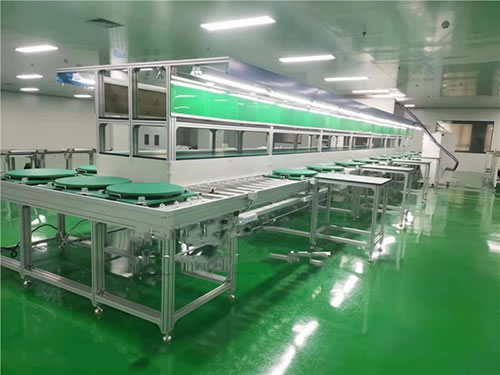Innovative Application of Limestone Raw Material in Thai Mineral Extraction

Limestone, a sedimentary rock composed primarily of calcium carbonate, has long been recognized for its versatile uses in construction, agriculture, and industry. In recent years, Thailand's mineral mining sector has witnessed a surge in innovative applications of limestone raw materials, transforming traditional mining practices and enhancing the sustainability of operations. This article explores some of these groundbreaking advancements.
1. Carbon Capture and Storage (CCS)
Thailand has taken significant strides in utilizing limestone for carbon capture and storage. By capturing carbon dioxide emissions from power plants and industrial facilities, limestone acts as a crucial component in the process. The captured CO2 is then stored underground in geological formations or used in enhanced oil recovery, reducing greenhouse gas emissions and mitigating climate change impacts.
2. Eco-Friendly Construction Materials
The demand for eco-friendly building materials has led to the development of limestone-based products that are not only sustainable but also energy-efficient. Limestone aggregates are now commonly used in the production of concrete, offering a reduced carbon footprint compared to traditional concrete mixes. Additionally, limestone powder is employed as a filler in paints and plastics, improving durability and reducing reliance on synthetic materials.
3. Soil Stabilization and Reclamation
Limestone's ability to neutralize soil acidity makes it an ideal choice for soil stabilization and reclamation projects. In Thailand, crushed limestone is mixed with poor-quality soils to improve their structure and fertility, benefiting agricultural productivity. Moreover, limestone dust is applied to stabilize landfill sites, preventing contaminants from leaching into groundwater systems.
4. Water Purification

Another area where limestone proves instrumental is in water purification processes. Limestone filters are utilized to remove impurities from water sources, providing communities with clean drinking water. These filters can effectively reduce levels of heavy metals, bacteria, and other pollutants, ensuring public health safety and environmental preservation.
5. Agricultural Liming
Limestone's role in agriculture extends beyond soil stabilization; it is also used as a liming agent to adjust soil pH levels optimal for crop growth. By applying pulverized limestone to acidic soils, farmers can increase nutrient availability and improve overall plant health, leading to higher yields and better quality produce.
6. Alternative Energy Production
As Thailand commits to renewable energy sources, limestone plays a part in the generation of clean energy through enhanced geothermal systems. By injecting limestone into geothermal reservoirs, heat transfer efficiency is improved, resulting in increased power output with reduced environmental impact compared to fossil fuel-based power generation methods.
Conclusion
The innovative applications of limestone raw materials in Thai mineral mining demonstrate a commitment to sustainability and efficiency across various sectors. From CCS initiatives to green construction, limestone's versatility offers solutions that contribute to environmental protection while supporting economic growth. As research continues, it is anticipated that even more creative uses for this abundant resource will emerge, further cementing limestone's place as a cornerstone of modern industry and environmental stewardship.